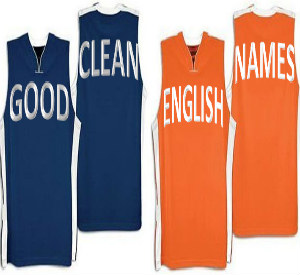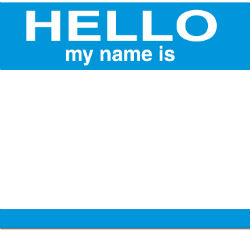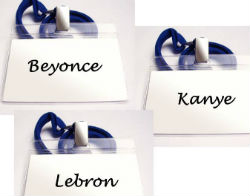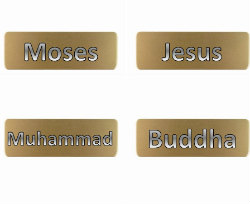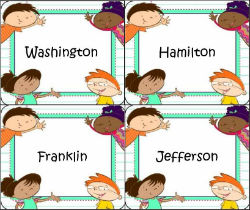“Why didn’t your mother give you a good, clean, English name?”
This unfortunate question was directed to me by a newly hired co-worker at my job during a training session a few weeks ago. While my initial reaction was surprise at the boldness and lack of tact with which the statement was uttered, the second (and longer-lasting) feeling that cascaded over me was one of disappointment in my co-worker. From the outside, it looked like she would have known better.

As a recent college graduate, a Person of Color, and a child of U.S. immigrants, I would imagine that at some point in my co-worker’s life, she has been on the receiving end of culturally offensive comments about her facial features, her last name, what kind of food she brought from home, etc. And yet, the question rolled effortlessly from my co-worker’s mouth. How is that possible?
In the hours after my co-worker’s question, I thought about the deep psychological baggage most of us carry as a result of being raised in an America with millions of stories but very few narratives. I have come to believe that my co-worker’s question had less to do with my name in particular, and much more to do with a set of beliefs about “other” names (and by extension, “other” people) in these United States.
Good. Clean. English. Names.
There a line in the 2006 Tyler Perry movie, Madea’s Family Reunion, where the movie’s main character – the “gangsta’ matriarch” Madea – shares the following advice to a younger relative: “It ain’t about what they call you, it’s about what you answer to.You remember that.” The power of your name (especially if it is rooted in your family’s cultural heritage) is that your name is what your parents chose to call you at the historical moment in your family’s lineage when you arrived. For those of us who choose to keep our given names into adulthood, our names are what we tell people to call us. It is what we answer to.
Good. Clean. English. Names.
What did my co-worker mean by a “good” name. Was this a binary reference? Did she think that there are just two types of names, good ones and bad ones? Was the word “good” referring to the lowest option on a good-better-best spectrum of name values? Maybe it was a reference to commonality, a way to describe names that are most-often encountered in daily American life.
Then I thought about my co-worker’s first name. I thought about her name in the historical context of the journey of U.S. cultural assimilation for the ethnic group her parents belong to. I thought about the choice her parents made, a choice also made by millions of other parents throughout American history, to give their child an “American-sounding” name.
As a child of immigrants, I appreciate the rough choices that immigrant parents have to make about how much of their culture to carry into the public square and “mixed company”…and how much to keep within the walls of their homes. I understand the consequences of being seen and treated as the “other”. I sympathize with the hopes that these parents have for their children, and their desire to avoid placing any more hurdles in their children’s path to the American Dream.
So I wondered, when my co-worker’s parents gave my co-worker her name, did they think it was “good” because the name did not reveal their cultural heritage?
Good. Clean. English. Names.
In my opinion, the word “clean” is the most tragic in this trio, as the implied meaning in the use of the word stands as a sobering rejoinder to the #AllLivesMatter conversations that have arisen in recent months. Again, I wondered whether my co-worker was using “clean” in a binary sense…whether she really believed we lived in an America where some names are clean and the rest are dirty. Maybe there was a spectrum of name cleanliness, where some names are spotless, other names are presentable, and still other names should not be allowed to leave the house.
The question that naturally emerges from this kind of thinking is, “clean for what?” For inspection? For presentation? I thought again of my co-worker’s parents. I thought of what happens to the psyche of people who come to the U.S. from an ethnic group or from a part of the world that is deemed to be “less than” the dominant culture in this country. What happens when your homeland carries a moniker of “third-world” or “developing nation”? What would it mean to immigrants from those countries to be seen as “clean” in the eyes of those who occupy positions of economic, social, political, and cultural power in our country?
Good. Clean. English. Names.
As a son of immigrants from a part of the world that spent six decades under British colonial rule, I am familiar with the varied ways in which the legacy of colonization wreaks havoc in the mental states of people who have achieved political independence, but who are still struggling to restore their psychological freedom.
Due to the continental reach of the British empire at its height, there are millions of people – representing many cultures, languages, and skin tones – who have spent the last couple of generations wrestling with how to weigh the benefits of knowing how to speak the global language of business, with the history of how their people came to learn English.
As I reflected further on my co-worker’s question, it became evident to me that she was applying a kind of cultural mathematics that was built upon the following axiom:
Good + Clean = [American] English
We like to think that understanding / tolerance / acceptance / equality / justice will come as a result of an increasingly diverse America. We like to think that millennials will be better than their Baby Boomer grandparents at creating a country where all ethnic backgrounds are included and viewed with dignity and respect.
We tend to think that multi-national corporations with diversity-friendly advertising will help people see that “we’re all the same”. We like to think that the presence of more popular entertainers from more cultural backgrounds will help take the edge off of the legacy of prejudice which remains in the cultural baggage we carry as children of America.
We want to believe in the very real fact that any child born in the U.S. who is in the 6th grade or younger has no tangible memories of a world where a married Black man with two kids and a dog is not the leader of the free world.
And while all these things are significant and definitely play a role in correcting our cultural lenses, they are not sufficient. For one-third of her life, my co-worker has lived in an America where names like Kardashian, Krzyzewski, and Obama are as mainstream as Jack and Jill.
At the end of the day, the work of engaging these ideas of cultural superiority, the work of uprooting these weeds which persist in the psychological garden of our nation… this work requires laborers.
Like you. Like me.
– Day G.
Host, Class of Hope & Change
